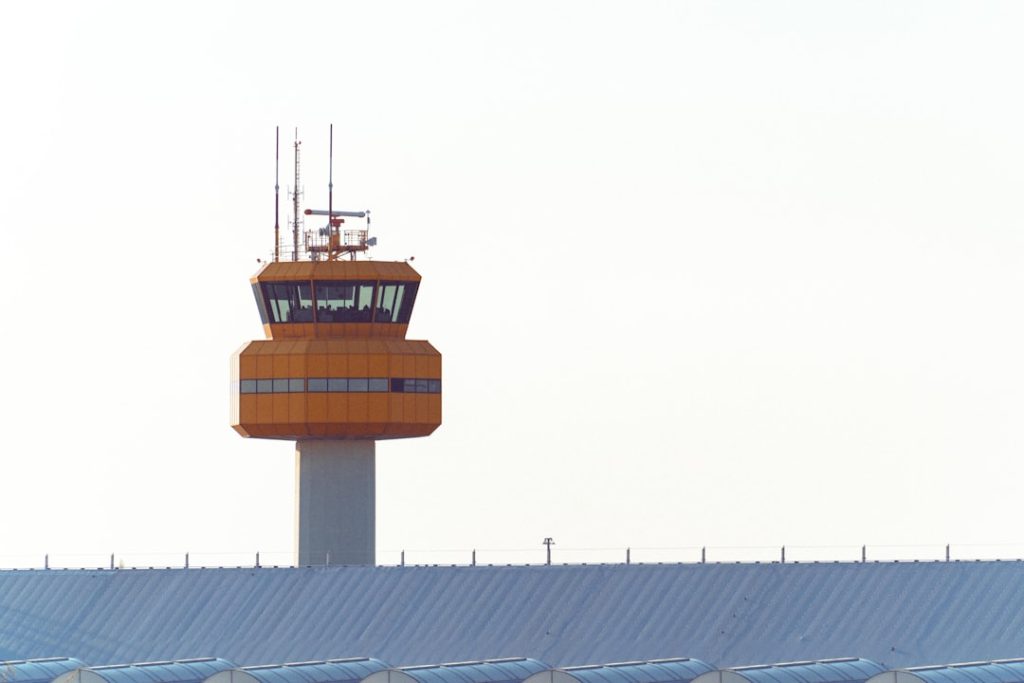The International Civil Aviation Organization (ICAO) is a specialized agency of the United Nations, established in 1944 with the primary objective of promoting the safe and orderly development of international civil aviation. Headquartered in Montreal, Canada, ICAO plays a pivotal role in setting global standards and regulations that govern the aviation industry. The organization was born out of the need for a coordinated approach to air travel, particularly in the aftermath of World War II, when the rapid expansion of air transport necessitated a framework for international cooperation.
Today, ICAO comprises 193 member states, each contributing to the collective goal of enhancing aviation safety, security, efficiency, and environmental sustainability. ICAO’s influence extends beyond mere regulatory oversight; it serves as a platform for dialogue among member states, industry stakeholders, and international organizations. By fostering collaboration and sharing best practices, ICAO helps to address the complex challenges facing the aviation sector.
The organization’s work encompasses a wide range of areas, including air navigation, safety management, environmental protection, and capacity building. As global air traffic continues to grow, ICAO’s role becomes increasingly critical in ensuring that the skies remain safe and accessible for all.
Key Takeaways
- ICAO is a specialized agency of the United Nations that sets international standards and regulations for the aviation industry.
- ICAO plays a crucial role in ensuring safe skies by developing and implementing global aviation safety and security standards.
- The organization collaborates with member states and international organizations to promote a harmonized and coordinated approach to aviation safety and security.
- ICAO’s initiatives for air navigation and air traffic management aim to enhance the efficiency and safety of global air transportation.
- ICAO is committed to environmental protection and sustainable aviation, addressing challenges such as carbon emissions and noise pollution.
The Role of ICAO in Ensuring Safe Skies
ICAO’s primary mission is to ensure the safety of civil aviation through the establishment of comprehensive safety standards and practices. The organization develops and maintains the Annexes to the Convention on International Civil Aviation, which outline essential safety protocols that member states are encouraged to implement. These Annexes cover various aspects of aviation safety, including aircraft operations, airworthiness, and personnel licensing.
By providing a standardized framework, ICAO helps to minimize discrepancies in safety practices across different countries, thereby enhancing overall aviation safety. In addition to setting standards, ICAO conducts audits and assessments of member states’ compliance with these safety regulations. The Universal Safety Oversight Audit Programme (USOAP) is a key initiative that evaluates the safety oversight capabilities of member states.
Through this program, ICAO identifies areas for improvement and provides technical assistance to help countries enhance their safety management systems. This proactive approach not only bolsters individual states’ safety measures but also contributes to a more robust global aviation system.
International Standards and Regulations for Aviation Safety

ICAO’s establishment of international standards and regulations is fundamental to its mission of ensuring safe skies. The organization operates under a framework known as the Standards and Recommended Practices (SARPs), which are detailed in its Annexes. These SARPs cover a wide array of topics, including air traffic management, airport operations, and accident investigation.
By adhering to these internationally recognized standards, member states can create a cohesive and reliable aviation environment that promotes safety and efficiency. One notable example of ICAO’s impact on aviation safety is its work in developing the Global Aviation Safety Plan (GASP). This strategic document outlines a comprehensive approach to improving safety performance across the aviation sector.
It emphasizes data-driven decision-making and encourages member states to adopt a risk-based approach to safety management. By fostering a culture of safety and encouraging continuous improvement, GASP aims to reduce the number of accidents and incidents in civil aviation.
ICAO’s Collaborations with Member States and International Organizations
| Collaboration | Member States | International Organizations |
|---|---|---|
| Technical Assistance | 150 | UNDP, World Bank |
| Training Programs | 120 | ICAO TRAINAIR PLUS Associate Members |
| Capacity Building | 100 | ICAO Global Aviation Training Office |
Collaboration is at the heart of ICAO’s efforts to enhance global aviation safety. The organization works closely with its member states to ensure that they are equipped with the necessary tools and resources to implement ICAO’s standards effectively. This collaboration often takes the form of workshops, training programs, and technical assistance missions designed to build capacity within national aviation authorities.
By empowering states to strengthen their regulatory frameworks and oversight capabilities, ICAO fosters a safer aviation environment worldwide. In addition to working with member states, ICAO collaborates with various international organizations to address common challenges in aviation. Partnerships with entities such as the World Health Organization (WHO) and the International Air Transport Association (IATA) enable ICAO to leverage expertise from different sectors.
For instance, during the COVID-19 pandemic, ICAO played a crucial role in coordinating efforts among member states and industry stakeholders to develop guidelines for safe air travel. This collaborative approach not only enhances safety but also ensures that the aviation industry can adapt to emerging challenges effectively.
ICAO’s Initiatives for Air Navigation and Air Traffic Management
ICAO recognizes that efficient air navigation and air traffic management are essential components of a safe aviation system. To this end, the organization has launched several initiatives aimed at modernizing air traffic management systems worldwide. One such initiative is the Global Air Navigation Plan (GANP), which provides a strategic framework for enhancing air navigation services through innovative technologies and operational improvements.
The GANP emphasizes the importance of implementing performance-based navigation (PBN) procedures, which allow aircraft to fly more precise routes using advanced satellite-based systems. By optimizing flight paths and reducing reliance on ground-based navigation aids, PBN enhances safety while also improving fuel efficiency and reducing environmental impact. Furthermore, ICAO encourages member states to invest in upgrading their air traffic management infrastructure to accommodate increasing air traffic demands while maintaining high safety standards.
ICAO’s Efforts in Environmental Protection and Sustainable Aviation

As global awareness of environmental issues grows, ICAO has taken significant steps to address the environmental impact of aviation. The organization recognizes that sustainable aviation is crucial for the long-term viability of the industry. In 2016, ICAO adopted the Carbon Offsetting and Reduction Scheme for International Aviation (CORSIA), which aims to stabilize net carbon emissions from international flights at 2020 levels through market-based measures.
CORSIA represents a landmark agreement among member states to collectively address greenhouse gas emissions from aviation. Under this scheme, airlines are required to offset their emissions by purchasing carbon credits from approved projects that reduce or remove carbon dioxide from the atmosphere. This innovative approach not only incentivizes airlines to adopt more sustainable practices but also fosters investment in renewable energy projects worldwide.
In addition to CORSIA, ICAO promotes research and development in sustainable aviation fuels (SAFs) as part of its broader environmental strategy. SAFs have the potential to significantly reduce lifecycle greenhouse gas emissions compared to traditional jet fuels. By collaborating with industry stakeholders and governments, ICAO aims to facilitate the adoption of SAFs across the global aviation sector, thereby contributing to a more sustainable future for air travel.
Challenges and Future Directions for ICAO in Ensuring Safe Skies
Despite its many achievements, ICAO faces several challenges as it strives to ensure safe skies for all. One significant challenge is the rapid growth of air traffic, which places increasing demands on existing infrastructure and air traffic management systems. As more people take to the skies, ICAO must work diligently with member states to enhance capacity while maintaining high safety standards.
This requires not only investment in infrastructure but also innovative solutions that leverage technology to improve efficiency. Another challenge lies in addressing emerging threats such as cybersecurity risks and evolving geopolitical tensions that can impact aviation security. As technology advances, so too do the methods employed by malicious actors seeking to exploit vulnerabilities within aviation systems.
ICAO must remain vigilant in adapting its security protocols and collaborating with member states to develop comprehensive strategies that mitigate these risks effectively. Looking ahead, ICAO’s future directions will likely focus on further integrating sustainability into its core mission while continuing to enhance safety and security measures. The organization will need to balance the demands of an expanding global aviation market with its commitment to environmental stewardship.
This may involve fostering innovation in aircraft design, promoting electric or hybrid propulsion systems, and encouraging greater collaboration between governments and industry stakeholders.
The Importance of ICAO in the Global Aviation Industry
The International Civil Aviation Organization plays an indispensable role in shaping the future of global aviation by ensuring safe skies through its comprehensive standards, collaborative efforts, and commitment to sustainability. As air travel continues to evolve in response to technological advancements and changing societal needs, ICAO remains at the forefront of addressing these challenges while promoting international cooperation among its member states. Through its initiatives aimed at enhancing safety, improving air navigation systems, and protecting the environment, ICAO not only safeguards passengers but also supports the growth of a vital industry that connects people and economies around the world.
The organization’s ongoing efforts will be crucial in navigating the complexities of modern aviation while ensuring that it remains safe, efficient, and sustainable for generations to come.



